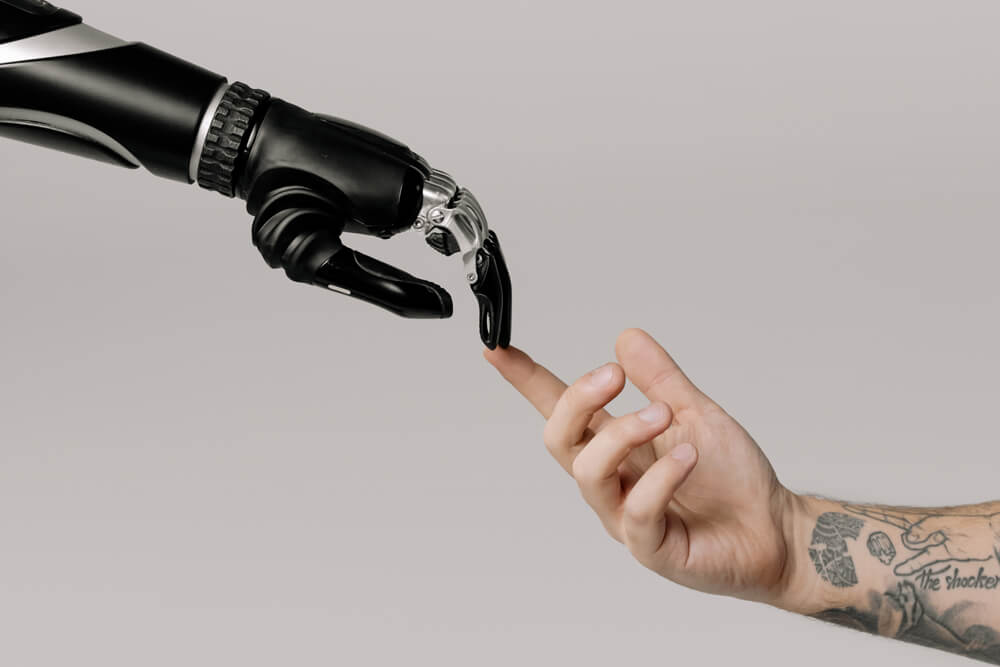A company without IT jobs is simply unimaginable in these dynamic, computer and technology driven days. Information technology is a link between classical electrical engineering and computer science, and depending on the job, one can position him or herself as a link between the average consumer and IT nerds. IT jobs are numerous and wide ranging.
Classic IT jobs are of course those of a software developer and contrary to all prejudices, they won’t be sitting alone in a dark basement. Sure, they will be writing codes, but the workday will consist of numerous meetings and a lot of teamwork.
Discussions during lunch break and technical talks about whether Java has ‚broken‘ object-oriented programming are just part of it. The main tasks are on the one hand is classical development, but on the other hand also software architecture and documentation.
In design industry, for example, one can implement the wishes of customers as a media and graphic designer or webmaster. The main task as a webmaster is the creation of websites. The various programming languages such as Javascript or PHP, but also graphic knowledge, turn into everyday language for these specialists.
However, these IT jobs are not only about the pure creation, but also about the care, maintenance and support of the respective site. What is exactly an IT job? In the IT jobs industry, specialists are spoiled for choice. One can be keen on programming codes or keen on having more customer contact.
What is exactly an IT job?
As an IT specialist, one can take a wide variety of paths. IT jobs’ tasks are varied. While one does a lot of programming as an application developer, the day-to-day work in system administration is more about keeping the IT in a company running smoothly. What is exactly an IT job? These are typical tasks of IT jobs:
- Front-end and back-end development using common programming languages
- Support and maintenance of information and telecommunications systems and networks
- Design of IT architectures
- IT consulting: development of software solutions for customers
- SAP development
- IT Support
- Mobile Development
- Creation of technical documentation
- Data analysis, administration and development
- Shaping the digital transformation of companies
For IT jobs, careers can start in a wide range of sectors, from the automotive industry to finance and logistics. One can also find a place at pure IT service providers or in start-ups in the media industry.
IT support jobs
IT support employees answer customer inquiries, develop solutions to problems and take care of the monitoring and maintenance of IT systems.
When it comes to customer inquiries, trouble reports and complaints, IT support is the first point of contact in a company. Their responsibilities also include troubleshooting and ensuring optimum product quality in the areas of hardware, software and networks.
IT support is required in particular by companies in the hardware and software sector.
IT support jobs analyze, evaluate and remedy faults either directly at the customer’s premises or also within the framework of telephone support. Within their own company, they monitor the proper functioning of existing computer systems and ensure that errors are rectified as quickly as possible.
Help desk jobs
Help desk jobs (also known as the service desk) are the central point of contact in the company responsible for IT support and service requests from users (= internal customers). Help desk jobs serve as a ‚single point of contact‘ (SPOC) for users and also form the interface to IT service management processes.
However, the help desk is not only responsible for user support, but also for the supporting software itself. The central component of the help desk software is the ‚issue tracking system‘. It helps support staff to record problems and inquiries, categorize them and forward them to the right places.
In order to be able to solve any IT problems competently and quickly, a help desk is broadly positioned:
- First level support consists mostly of call center personnel without specific technical training. The main tasks of these employees are to establish initial customer contact, analyze and categorize problems and, if possible, solve them themselves. The most frequent inquiries revolve around the use of end devices such as smartphones or laptops.
- The second level of customer service is staffed by system administrators with technical expertise – ideally IT specialists. They have to use remote diagnostics to help customers quickly and effectively on the phone or online.
- System analysts with a degree in computer science work in third-level support. These IT experts deal exclusively with new, complex or business-critical problems that require efficient resolution. Extensive, up-to-date knowledge of enterprise software and hardware is a prerequisite. Although there is usually no direct contact with the user, third level support staff are still expected to have good communication skills as they usually work in teams.
IT auditor
An IT auditor analyzes and evaluates IT-supported business processes with regard to their efficiency and quality, potential risks, and compliance with internal and external requirements. For example, he or she plans and carries out management, finance and/or compliance audits. In the finance area, for example, an IT auditor is responsible for IT audits in the annual financial statements. In his work, he uses reports to ensure that the audit objectives are achieved efficiently.
At the same time, he assesses the risks and controls of the internal control system. In a leading position, he manages his team and works together with other protagonists of the IT audit and advisory team.
An IT auditor has comprehensive knowledge of topics of IT infrastructure, IT applications, IT security and data protection. He carefully analyzes the results of his audits and communicates them to management or the customer.
Since he has deep insights into corporate IT, he also advises on IT issues at some companies. Topics include IT strategy, organization, IT processes, sourcing/architecture, information security and project management. A good IT auditor is characterized by analytical thinking and quick comprehension.
IT director
An IT director manages either IT teams or an entire IT department, depending on the size of the company. In doing so, they work as an interface and mediate between the employees reporting to them and the rest of the company. An IT director is mostly part of the management board and is responsible for the entire IT of a company.
They ensure successful implementations of IT projects and guarantee efficient team work. Within the company, they enjoy high status together with corresponding responsibility since well functioning IT infrastructure is shown to be an important success factor for successful businesses. Besides excellent IT knowledge, they have excellent management skills. Together with their teams, they are able to develop software solutions on demand.
IT consultant
Basically, an IT consultant advises and supports companies in IT projects. Depending on the technical focus, the tasks of an IT consultant vary – the main tasks include the technical and economic analysis of IT projects and their implementation. IT consultants must always be flexible and adaptable, as hardly any other sector develops as quickly as the IT industry.
IT consultants accompany companies throughout the entire duration of a project – from planning to implementation and, if necessary, also hold training courses. In the following, some typical tasks and characteristics of IT consultants are listed:
- Recognize and develop the potential of customers
- Advise customers
- Establish relationships with customers
- Overcome challenges together with customers
- Take over project management
- Driver of innovation
- Communicator
- Know-how mediator
- Problem solver
- Create concepts




